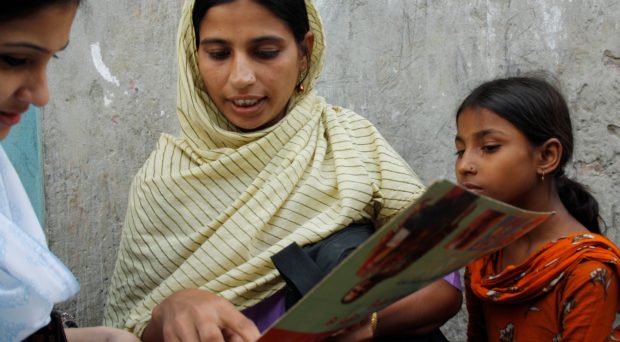
In spite of many setbacks and controversies, we are now at the dawn of a new era for Community health workers (CHW). There is widespread growing awareness that well-developed and supported CHW programs have the potential to accelerate progress in achieving Health for All, as called for in the 1978 Declaration of Alma-Ata. Of course, many practitioners and visionaries over the years have implemented and supported such programs and seen the broader potential of large-scale CHW programs, but only now has this realization moved into the mainstream of global health policy and practice.
There are a number of reasons for this paradigm shift. First of all, it has become obvious that the world is not on track to achieve the goals of Universal Health Coverage and Ending Preventable Child and Maternal Death by 2030 as called for by the United Nations, the World Health Organization and UNICEF. Expanding and strengthening CHW programs is perhaps the single most effective strategy for accelerating progress toward these goals.
Secondly, it has become increasingly obvious that CHWs are not a temporary, second-class response to the challenge of providing health services for those in poor countries who need them. Rather, they are an essential component of a first-class health system anywhere in the world because CHWs can make it possible for all persons to receive the essential services required for optimal population health. In the past, CHWs have addressed mainly maternal and child health needs, but even in the poorest countries non-communicable diseases (NCDs) account for a rapidly growing component of the disease burden in the population, and CHWs can play an important role in screening, identification of those in need of care, and provision of basic and essential health care services for those with NCDs. Even in highly developed countries such as the United States and the United Kingdom, marked disparities in health status and in the utilization of health service remain, and CHWs are a rapidly growing resource to diminish these disparities. Furthermore, the growing number of elderly who are home-bound with health needs in all countries provide another opportunity for CHWs to provide an unmet need.
Thirdly, the COVID-19 pandemic has made it even clearer than before (and prior to the COVID-19 pandemic it had become increasingly clear, especially during the 2013-6 Ebola outbreak in West Africa) that CHWs can play a critical role in the control of infectious diseases – identification of disease outbreaks and suspect cases, referral of suspect cases for treatment, isolation of cases, sharing of essential information at the household level about precautions to take, promotion of immunizations, and participation in vaccination campaigns.
All of these issues and many more are addressed in the recently released journal supplement entitled Community Health Workers at the Dawn of a New Era. This series of 11 articles accompanied by an editorial provided by Joseph Zumu and myself – both Guest Editors – provides a comprehensive current view of the entire spectrum of challenges and opportunities that face large-scale CHW programs in low- and middle-income countries. The supplement follows a logical progression of topics: tensions facing large-scale CHW programs; CHW program planning, coordination and partnerships; program governance; financing; roles and tasks; selection, training and continuing education; supervision; incentives and remuneration; relationships with the health system and communities; program performance and assessment; and looking to the future. The underlying theme of all of these articles is the remarkable potential that these programs have if they are well planned and supported and if they implement interventions that have been proven to be effective through solid implementation research.
The supplement a vision for what needs to be done to help these programs achieve their full potential. The benefits are can be substantial:
- acceleration of progress in achieving Universal Health Coverage, Ending Preventable Child and Maternal Deaths
- marked improvements in the control of priority infectious diseases, and
- meaningful contributions to the control on NCDs.
The supplement aims to raise awareness of the potential of CHW programs and the urgent need to expand and strengthen them, thereby making them a permanent and essential component of – if not the foundation for – primary health care systems throughout the world. We hope the supplement will be useful for policy makers, program planners and managers, donors, academics and students, and even community leaders and members, who are eager to accelerate progress in achieving Health for All.
Comments